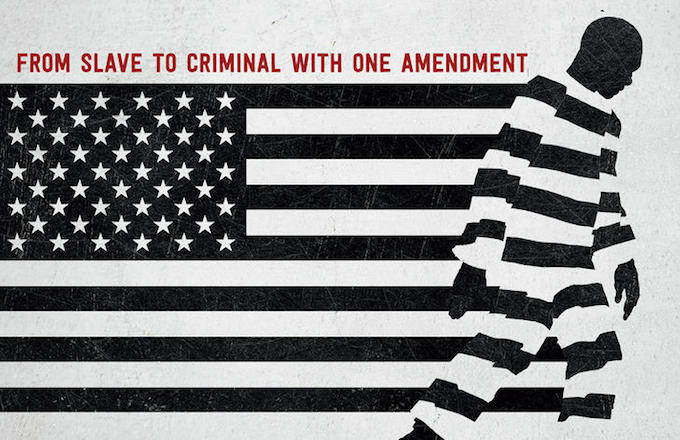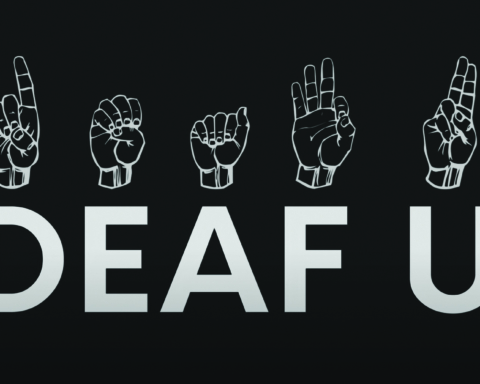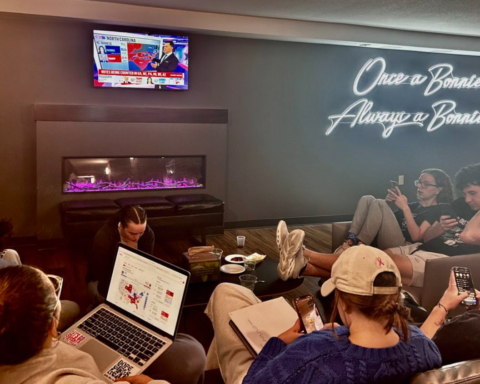The United States is home to 5 percent of the world’s population, but they also house 25 percent of the world’s prisoners. This opening to the Netflix original film, “13th: From Slave to Prisoner” emphasizes the harsh reality for African-Americans as the government finds loopholes to restrict their rights.
“The very folks who often express so much concern about the cost and expanse of the system are often very unwilling to talk in any serious way about remedying the harm that has been done,” Michelle Alexander, an interviewee in the documentary, said about attempts at reforming the prison system in our modern day.
The beginning of the film states that when the 13th amendment passed, making slavery unconstitutional, there was a loophole to this newfound freedom where a former slave would be considered free unless he or she is a criminal.
Owning slaves was integral to economic production in the South, Jelani Cobb, a documentary interviewee, points out. The economy in the South suffered after they became freed people, and to help rebuild it, this loophole immediately became exploited.
“After the Civil War, African-Americans were arrested en masse,” Alexander said. “It was our nation’s first prison boom.”
Many of them were being arrested for minor crimes like loitering and vagrancy. By putting African-Americans in jail, our society has created new ways to keep them from being as free as the constitution is supposed to grant them.
Today, black men also account for 6.5 percent of the United States’ population, but 40.2 percent of those in prison are black men.
Once someone’s been convicted of a crime, they’re essentially a slave to the state.
“You were basically a slave again,” Kevin Gannon, another interviewee, said. “Except for criminals, everybody else is free.”
The documentary also describes The Birth of a Nation as a profoundly important cultural event, released about 50 years after the 13th amendment. Considered one of the first major blockbuster films, it had an accurate prediction of how race would operate in the United States, while also trying to erase defeat and take it out as a martyrdom following the Civil War.
“And every image you see of a black person is a demeaned, animal-like image,” Henry Louis Gates, Jr., an interviewee, said about The Birth of a Nation. “Cannibalistic, animalistic: The image of the African-American male.”
On top of what Gates said, the film portrayed African-American men as rapists, to the point where a woman threw herself off a cliff, rather than be raped by a black male criminal. This scene emphasizes how black men are seen as a threat to white women.
Its release allowed for a rebirth of the Ku Klux Klan for its “romantic, glowing, heroic portrait.” The KKK didn’t initially burn the cross, but D.W. Griffiths thought it made a good image, and Cobb considers this a direct example of life imitating art. This time afterward was also described as another wave of terrorism, as African Americans suffered from lynchings between Reconstruction and World War II; thousands were murdered by mobs.
The demographic of this country was shaped by this era, as many moved to Oakland, Los Angeles, Chicago, Cleveland, Detroit, Boston and New York as refugees of terror.
Following the screening of the film, Parker Suddeth, coordinator for the Damietta Multicultural Center, led a discussion where students commented on their reactions and thoughts on the current state of our prison system.
Students were shocked to find out one in three black men will end up in jail at least once, given there were at least three men who identified as African-American in the room. Statistically, one of them is supposed to be put in jail, whereas the lifetime likelihood of imprisonment for white men is one in 17.
Another student wondered how those involved with passing Bill Clinton’s 1994 crime bill allowed him to make the mistake to put it in place, but then the conversation of whether it was a mistake or not came into play.
Soquania Henry, a junior well-being of marginalized societies major, said, “If someone’s making money, it had to be intentional.”
Even in the documentary, Gannon said, “History is not just stuff that happens by accident.”
The documentary highlighted the importance of taking action now, and how our society needs to be more aware of the impact history had on African-Americans, before the results are too late to reverse.
“Justice too long delayed is justice denied,” Martin Luther King Jr. once said.
habersk15@bonaventure.edu









